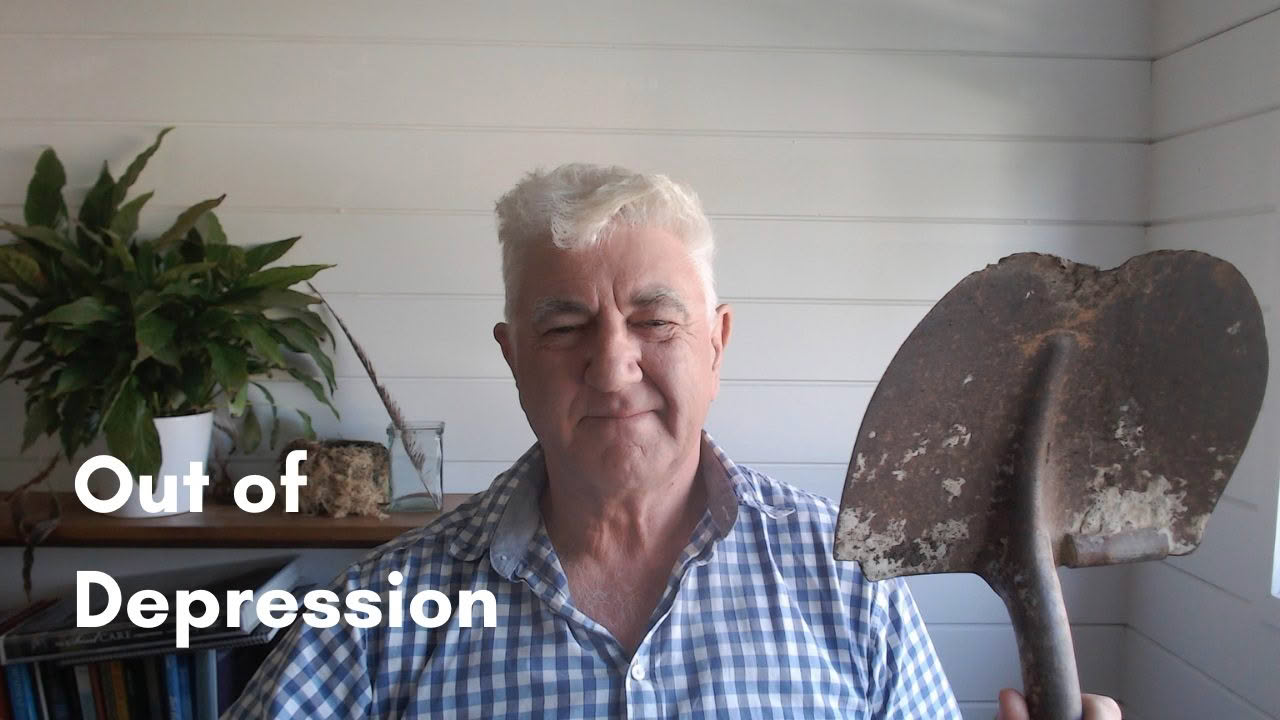Hi, and thanks for expressing a desire to take this class.
Here is the video of the course, some links to points mentioned in class, and an A.I generated summary of what I shared.
Can you email me with any comments re course? Perhaps topics for future classes.
Please do not share this page or YouTube link
Links to blog post articles
- Pt.1 My Dance with Depression and What I have Learned.
- Pt. 2 My Dance with Depression and What I have Learned.
- Pt. 3 Dance with Depression and what i have learned
- Pt. 4. My Dance with Depression and What I have learned.
- Pt. 5. My Dance with Depression and What I Have Learned
- How to Create New Rope Bridges in our Thinking
- How to Develop a Compass for the Brain
- When the Stress is Too Much
- What’s Your Ambient Stress Level?
AI generated notes
| Barry’s Personal Journey and Mental Health | |
| Barry, the host of the meeting, shared his personal journey and experiences with depression and mental health. He emphasized the importance of lived truth and practical insights over academic theory. He also introduced a quote by Rick Hansen, which he found inspiring. Barry used a shovel as a metaphor for the tools needed for recovery, and he expressed his desire to make mental health resources accessible to everyone, regardless of their location or financial situation. He thanked the participants for being part of this journey and helping others. | |
| Managing Stress With Vulnerability Model | |
| Barry discussed the stress-vulnerability model, a tool he uses to help people understand and manage their stress levels. He explained that everyone has a breaking point, a point of vulnerability, where too much stress can lead to physical and mental health issues. He emphasized the importance of identifying stressors and developing strategies to cope with them. Barry also shared his personal experience of using medication to manage his stress levels and how it helped him cope better with life. He encouraged the audience to try drawing the stress-vulnerability model themselves and to share it with others. | |
| Barry’s Life Story and Mental Health | |
| Barry shared his life story, highlighting his upbringing on a farm with a pastoral father and a mother who struggled with depression and was on valium for a significant part of her life. He expressed curiosity about the potential genetic link to his own depression. Barry’s journey included studying at university, marrying, and working in horticulture before being drawn to people-focused work in mental health. He fell in love with helping people with serious mental illnesses and became a chaplain pastor, specifically pastoring a community of people with major and serious mental illnesses. He also mentioned the stress involved in his pastoral role and the importance of supervision and support. | |
| Barry’s Journey With Depression and Change | |
| Barry discussed his journey with depression and how it affected his life. He shared that he initially didn’t recognize the signs of depression until his life took a significant downturn. After being prescribed medication, he noticed a change in his perspective and began to work on aspects of learning and self-improvement. He introduced the concept of “millimeter ministry,” emphasizing the importance of persistence and encouragement in making gradual changes. Barry also mentioned that he continued to receive counseling and support during this time. | |
| Affirmations and Overcoming Negative Self-Talk | |
| Barry discussed the importance of affirmations in retraining the brain and overcoming negative self-talk. He shared his personal experience of using affirmations to combat negative thoughts and emphasized the need to replace “stinky thinking” with positive affirmations. Barry also highlighted the differences between men and women in terms of their purpose and fears, suggesting that men’s greatest fear is being impotent while women’s greatest fear is being invisible. He concluded by stating that he is focusing on helping others through his work, and plans to provide links to his blog posts on these topics. | |
| Barry’s Mental Health Journey and Insights | |
| Barry discussed his personal journey of self-discovery and how it has impacted his mental health. He shared how he used affirmations and insights to retrain his brain, focusing on the positive and opportunities rather than negatives and challenges. He also talked about his Myers-Briggs personality type, INFJ, and how understanding this has helped him accept his differences and embrace his unique qualities. Furthermore, he mentioned the Enneagram personality test, revealing that he is a giver and a carer. Barry emphasized the importance of structure and organization in managing his depression, and suggested that confusion and lack of structure can contribute to it. He concluded by expressing his intention to help others navigate their own mental health journeys. | |
| Support Network and Mental Health | |
| Barry discussed the importance of identifying one’s support network, or ‘nest’, and the role of creativity in mental health recovery. He emphasized the need to surround oneself with positive influences and engage in creative activities to foster a sense of accomplishment and purpose. Barry also highlighted the significance of recognizing and managing physical tiredness, which can contribute to depression. He used the metaphor of a ‘black dog’ to describe depression, suggesting that with proper strategies and support, the dog can shrink from a dominant presence to a manageable companion. | |
| Barry’s Personal Journey and Feedback | |
| Barry shared his personal journey with depression and encouraged the class to reach out to him for further learning. He expressed gratitude for the class and mentioned that he would be uploading the video on a private platform for those who have the link. He also requested feedback and suggestions for future topics to be covered in his courses. He concluded the session by wishing everyone well and encouraging them to continue learning. | |

